What is the best camera for podcasting?
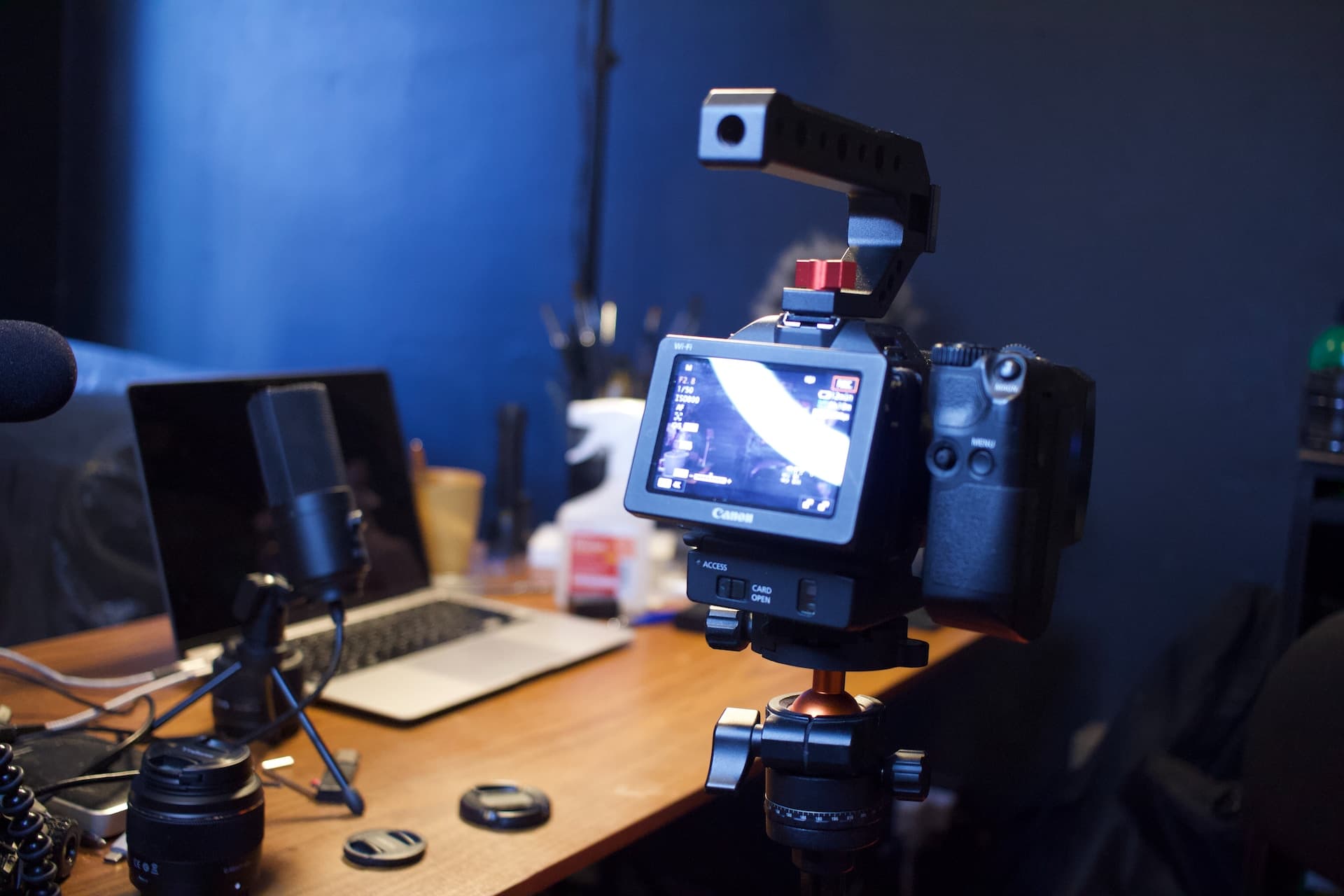
When it comes to producing high-quality video podcasts, having the right equipment is essential. Among the crucial components, selecting the right camera plays a pivotal role in enhancing the visual aspect of your content.
Looking for more general information about podcasting and how to get started? Check out introductory tips and insights from Memberful in our blog post How to record a podcast: Tips and tricks for audio success.
This guide will take a look at the best cameras for podcasting, ensuring you capture every moment with clarity and professionalism, and what factors to look for when making your decision. Let’s dive in!
Factors to consider when looking for the best camera for podcasting
A high-quality podcasting camera not only enhances the visual appeal of your podcast (should you choose to include video) but also elevates the overall professionalism and feel of your output. Here are a number of important hardware considerations:
Sensor size for light sensitivity
The heart of any camera lies in its sensor. It dictates how much light the camera can capture and consequently, the image quality. When it comes to podcasting, as with photography, a larger sensor keeps your visuals crisp and vibrant. Full-frame sensors, known for their exceptional light sensitivity, are the gold standard for professional-grade podcasting.
Resolution for image clarity
While a high resolution is crucial for photographers, it holds equal importance in the realm of podcasters. Opt for a camera with at least 4K resolution although 6K is available nowadays. This ensures that your visuals are not only sharp but also future-proof, and will be able to keep up with evolving industry standards.
Autofocus for seamless recording
Efficient autofocus is non-negotiable for a podcasting camera. Look for a camera equipped with dual-pixel or phase-detection autofocus. This feature guarantees that your subject remains in sharp focus, even if there are slight movements during the recording.
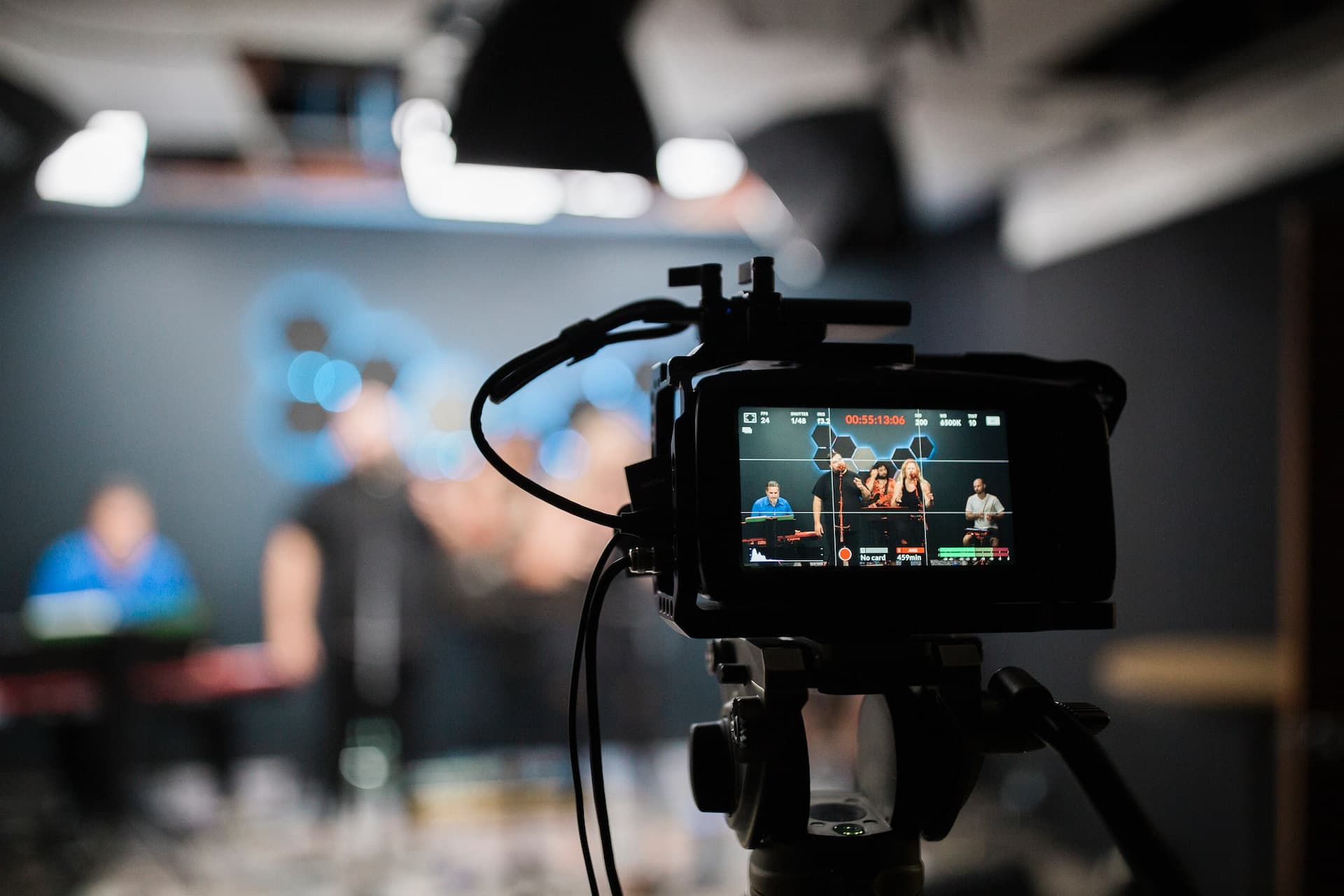
Lens compatibility for adaptability
A versatile lens selection can drastically enhance your visual storytelling capabilities. Invest in a camera with a wide range of compatible lenses, allowing you to adapt to various shooting scenarios. From wide-angle shots to tight close-ups, having the right lens at your disposal is indispensable.
Low-light performance for all environments
Podcasting setups may not always have the luxury of perfect lighting conditions. Hence, a camera with stellar low-light performance is a game-changer. A wider aperture coupled with a larger sensor size significantly improves performance, and therefore, video visibility in low-light settings.
Connectivity including external microphones
Audio quality is perhaps more important for video podcasters than visual appearance. Ensure your chosen camera supports external microphones. This allows you to capture pristine audio, free from unwanted background noise. Additionally, built-in Wi-Fi and Bluetooth capabilities allow for seamless file transfers and remote control.
Recommendations for the best camera for podcasting
When choosing a camera for video podcasting, it's important to consider your budget and your needs. If you're just starting out, a webcam or budget-friendly DSLR camera may be a good option. If you're more serious about video podcasting, you may want to invest in a dedicated video camera or mirrorless camera.
No matter which camera you choose, make sure to get a good microphone and tripod. These accessories will help you achieve high-quality audio and video for your podcast. Here are our recommendations for the best camera for podcasting:
1. Sony A6400
The Sony A6400 excels with 24.2MP APS-C sensor and Real-Time Eye autofocus for stunning portraits. It offers 4K video recording with excellent autofocus capabilities. The camera's compact design, impressive 11 fps continuous shooting, and tilting touchscreen make it a versatile choice for various shooting scenarios.
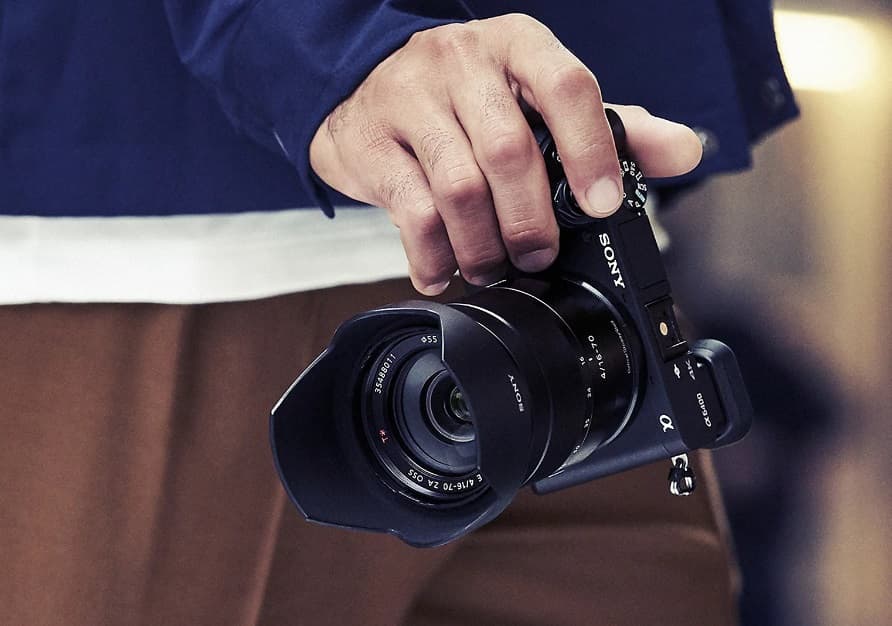
- Sensor: APS-C (23.5 x 15.6 mm)
- Resolution: 24.2 megapixels
- Autofocus: Fast and accurate Real-Time Eye AF and Real-Time Tracking
- Connectivity: Wi-Fi, NFC, Bluetooth, Micro HDMI, Microphone input, Headphone output, USB 2.0
For more information, go to the Sony website >
2. Canon EOS M50 Mark II
The Canon EOS M50 Mark II features a 24.1MP APS-C sensor for sharp imagery. Its Dual Pixel CMOS AF with Eye Detection ensures precise focus in both photos and videos. The camera supports 4K UHD recording and boasts a vari-angle touchscreen, making it a user-friendly choice for vlogging and video podcasting.
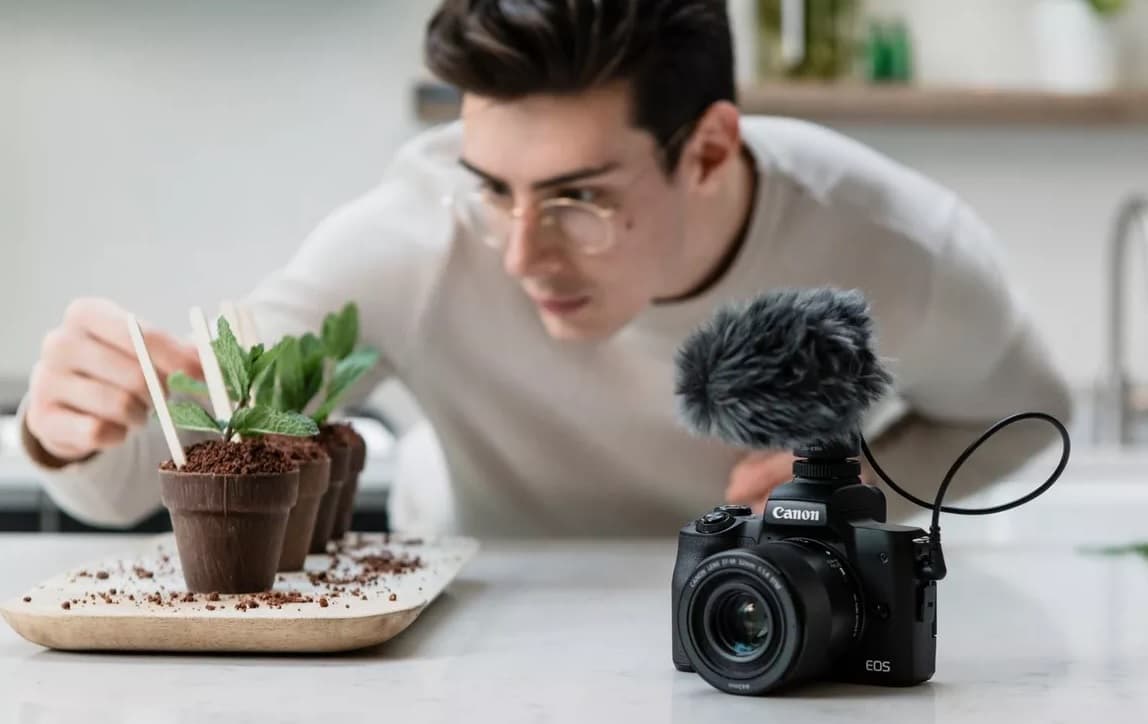
- Sensor: APS-C (22.3 x 14.9 mm)
- Resolution: 24.1 megapixels
- Autofocus: Dual Pixel CMOS AF with Eye Detection AF
- Connectivity: Wi-Fi, NFC, Bluetooth, HDMI, Microphone input, USB 2.0
For more information, go to the Canon website >
3. Panasonic Lumix GH5
The Panasonic Lumix GH5 is a powerhouse in terms of video quality and low-light performance. Its micro four-thirds sensor provides excellent depth of field, making your visuals stand out. It's a top choice for videographers as well as video podcasters.
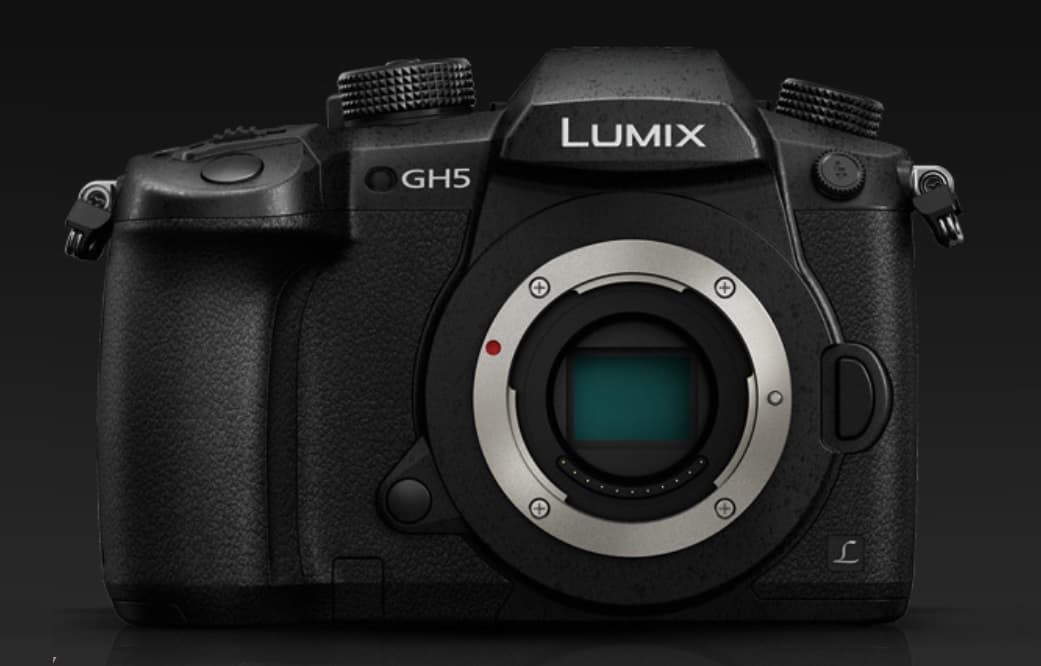
- Sensor: Micro Four Thirds (17.3 x 13 mm)
- Resolution: 20.3 megapixels
- Autofocus: Fast Depth from Defocus (DFD) technology
- Connectivity: Wi-Fi, Bluetooth, HDMI, Microphone input, Headphone output, USB 3.1
For more information, go to the Panasonic website >
4. Nikon Z7
The Nikon Z7 impresses with a high-resolution 45.7MP full-frame sensor for outstanding detail. Its 493-point hybrid autofocus system ensures precise subject tracking. The camera offers 4K video recording, five-axis in-body stabilization, and electronic viewfinder and tilting touchscreen for usability.
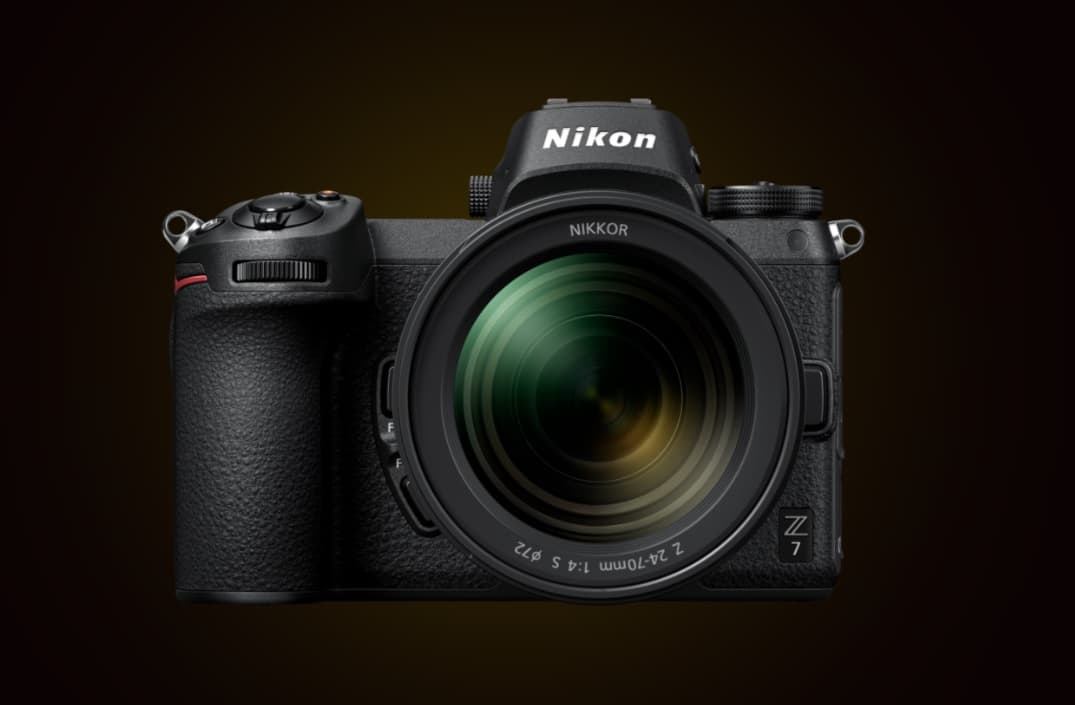
- Sensor: Full-frame (35.9 x 23.9 mm)
- Resolution: 45.7 megapixels
- Autofocus: Hybrid phase-detection/contrast-detection AF with 493 points
- Connectivity: Wi-Fi, Bluetooth, HDMI, Microphone input, Headphone output, USB 3.1
For more information, go to the Nikon website >
Conclusion: Best camera for podcasting
Selecting the best camera for podcasting is a pivotal step toward creating engaging and visually appealing content.
A camera with a large sensor, high resolution, precise autofocus, versatile lens compatibility, stellar low-light performance, external microphone support, and ergonomic design will undoubtedly set you on the path to podcasting success.
Invest wisely, and let your visuals speak volumes in the realm of video podcasting excellence!
Each of the cameras recommended above excels in different aspects, catering to various podcasting styles and preferences.
Consider your specific needs and budget to make an informed decision. With any of these fantastic cameras, you're bound to elevate the quality of your podcast and leave a lasting impression on your audience. Happy podcasting!
FAQs for the best camera for podcasting
Q: Do I even need a camera for podcasting?
A: Not necessarily! Many podcasts are audio-only, and depending on your format, a camera might not be essential. However, visual podcasts are growing in popularity, offering additional engagement and reach.
So, if you're considering adding video to your podcast, a camera becomes important.
I'm new to this. What are some budget-friendly options?
A: For beginners, a high-quality webcam like the Logitech Brio 4K can be a great starting point. It offers good video quality and decent audio for a reasonable price.
Should I focus on video quality or audio quality?
Both are crucial, but prioritize audio. Clear, crisp audio is essential for any podcast. Invest in good microphones and audio gear before worrying about top-of-the-line video equipment.
Subscribe for updates
Stay up to date on Memberful's latest product updates, insights, and teaching centered around growing your community.
Have an audience?
Customers like Mythical (28+ million subscribers) rely on Memberful to power their membership communities.
Get started for free